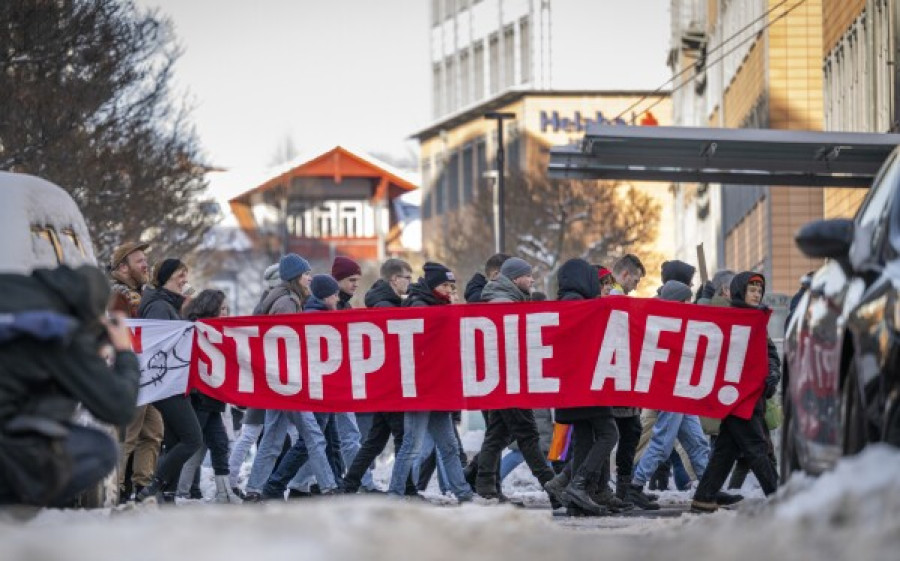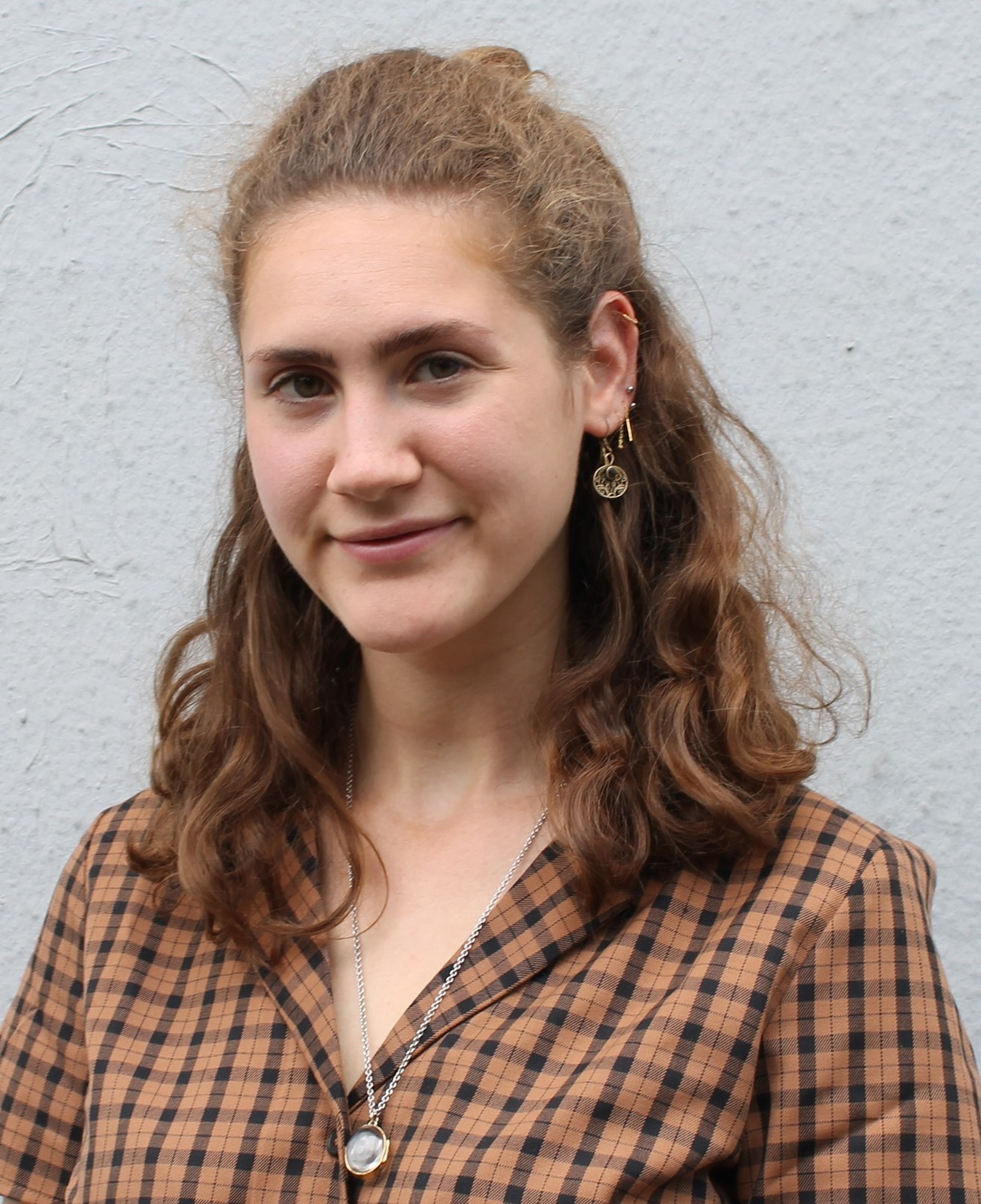Columns
The return of far-right in Germany
Was liberal democracy just another brief chapter in the country’s history?
Dorka Elisabeth Anton
After all that happened during the Second World War, one would think we had learned our lesson forever—that we’d recognise right-wing populism and remember how the visions of the Nazis ended in the genocide of six million Jews and the persecution of other minority groups. One would think we’d never let people whose ideologies align with Hiter’s gain power again. But only 90 years later, right-wing populists are making a comeback globally.
In Germany, most politicians on the far left or the far right pretend to provide a political alternative to the established parties. In particular, the far-right party Alternative for Germany (AFD) takes advantage of people’s fears, including xenophobia and the general human fear of any change, whether it is refugees or queer people. The AFD likes to present itself as an opposition party and approach those feeling forgotten or left behind in a rushing world. Its ideas, however, often contain over-simplified, unrealistic answers to complex questions in a complicated world.
For instance, in an interview, AFD politician Beatrix von Storch said that the earth’s rising temperature was due to the sun and that the sun should be sued for climate change. This, of course, being an extreme illustration of their bizarre approach to real-world problems. But digging into the AFD’s campaigns, there’s a pattern of looking for scapegoats and simplified answers to complex issues.
However, comparing the radical mindset of AFD politicians and their followers to the Nazi ideology, Germany seems to be where it was a century ago, and Holocaust survivors alert that this is how everything started back then, too. The AFD’s power has risen with every election since the 2015 refugee crisis. Especially after several terror attacks across Europe in the last few years, people are scared, and this is fueling the ongoing controversial debates about national and European asylum politics.
Even though the number of felonies committed by foreigners shrinks while those being far-right motivated rises, people seem to focus on an unreasonable fear of immigrants. Recent studies show that 60 percent of Germans want to shut the borders to refugees, and even more are worried about the high number of immigrants. Closing the external borders and averting migration are AFD’s major selling points and, therefore, explain their increasing success. Even though other parties keep promising that cooperation with AFD would be out of the question, its growing influence is concerning, as migration politics isn’t all they’re known for.
During the Covid-19 pandemic and especially during the lockdowns, AFD politicians were seen demonstrating among those denying the existence of the coronavirus and spreading conspiracy theories about the government’s “real reasons” for the lockdown. These demonstrators stood up against what they believed to be a dictatorship, ignoring that in such a case, they probably wouldn't be allowed to publicly doubt the government. Still, many people felt neglected and let down by the established parties during the lockdowns. And many of those publicly disagreeing with the political handling of the pandemic were sympathetic to AFD’s visions.
Meanwhile, they ignore or trivialise alarming quotations from leading AFD politicians, such as: “Locking Homosexuals into prison? We should do the same in Germany”; “I wouldn’t judge anyone who set an occupied refugee camp on fire”; “The major problem is to see Hitler as starkly evil”; and “At least now we have enough refugees in our country so that another holocaust would be profitable.”
Currently, the AFD is making headlines for its dubious cooperation once again. The German research organisation “Correctiv” revealed the attendance of multiple AFD politicians at a right-wing extremist event in November 2023 regarding a “master plan for remigration.” Among Neo-Nazis, “remigration” is used as a battle term referring to the deportation of millions of people from the LGBTQIA+ community, people with handicaps, or migration backgrounds without clarifying up to which generation, even if they had a German passport for decades. Since most of them only have German passports, it raises the question of where those people would be brought. It wouldn’t be surprising if not just the idea but even the implementation would align with the Holocaust.
This is not the first time AFD politicians were seen at dubious events like the one in November 2023. But it is almost usual how the AFD vigorously tries to dissociate itself from the radical ideas that have been voiced at that meeting. AFD politicians keep pushing boundaries on the fringes of illegality but are too cowardly to stand up for it. Those who took part in the meeting about remigration later denied knowing the meeting’s purpose in advance—even though it was mentioned in the invitation. Others say they went privately, not representing the AFD.
By now, several newspapers and politicians have alerted that Germany’s democracy is in danger. With several leading AFD politicians known for their close connections to Neo-Nazis, there are discussions to ban the whole party as right-wing extreme. But in a democracy, this step comes with high obstacles, and other parties are still at odds about the outcome of a ban, if it would be successful at all.
Acting too fast and lacking evidence might cause a hopeless case and, thereby, the impression that AFD wasn’t dangerous after all. The Federal Minister of Justice Marco Buschmann fears that a court fight would create unintended propaganda for the AFD, and they’d sell it as a compurgation by the Federal Constitutional Court. It could lead to an even higher solidarity with the AFD, even from some who haven’t sympathised with them so far.
But what would happen if AFD ruled Germany?
If the AFD came to power, Germany would probably try to leave the European Union, leading to a horrendous economic crisis since Germany’s economy depends on free trade and exportation. Moreover, the country would refuse to care for refugees or climate change mitigation.
Besides that, there’s little the average AFD voter would profit from. AFD’s economic policy mainly approaches the richest few percent of Germans, while most AFD voters don’t dispose of a superior income.
Taking AFD’s threats seriously, every person with a migration background, no matter how little, would have to face deportation, as would the LGBTQIA+ community and everyone who doesn’t quite fit right-wing extremist ideology in any way. Journalists and activists would have to fear their rights in danger.
And I would wonder—was democracy just another brief chapter in German history?




 9.89°C Kathmandu
9.89°C Kathmandu















